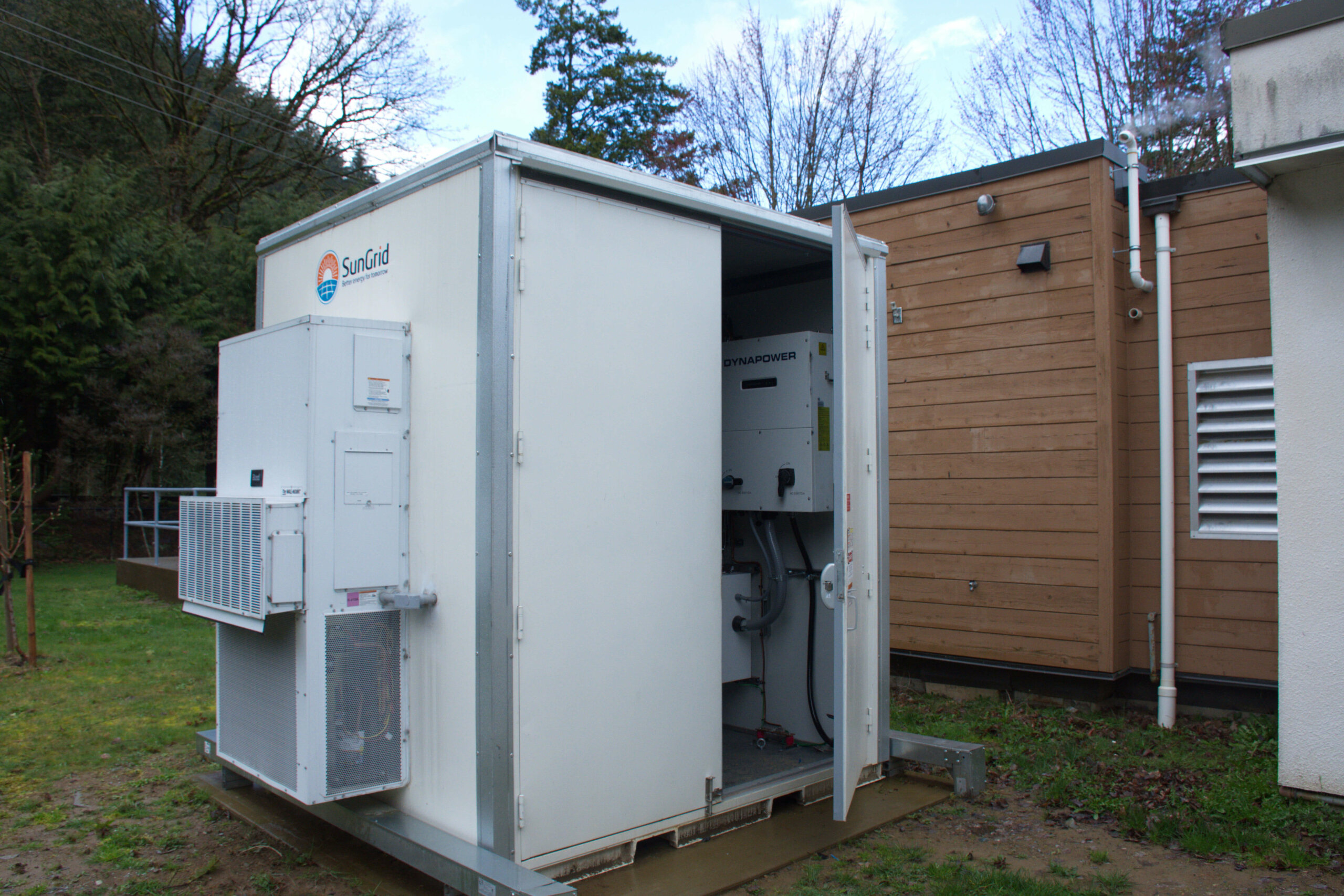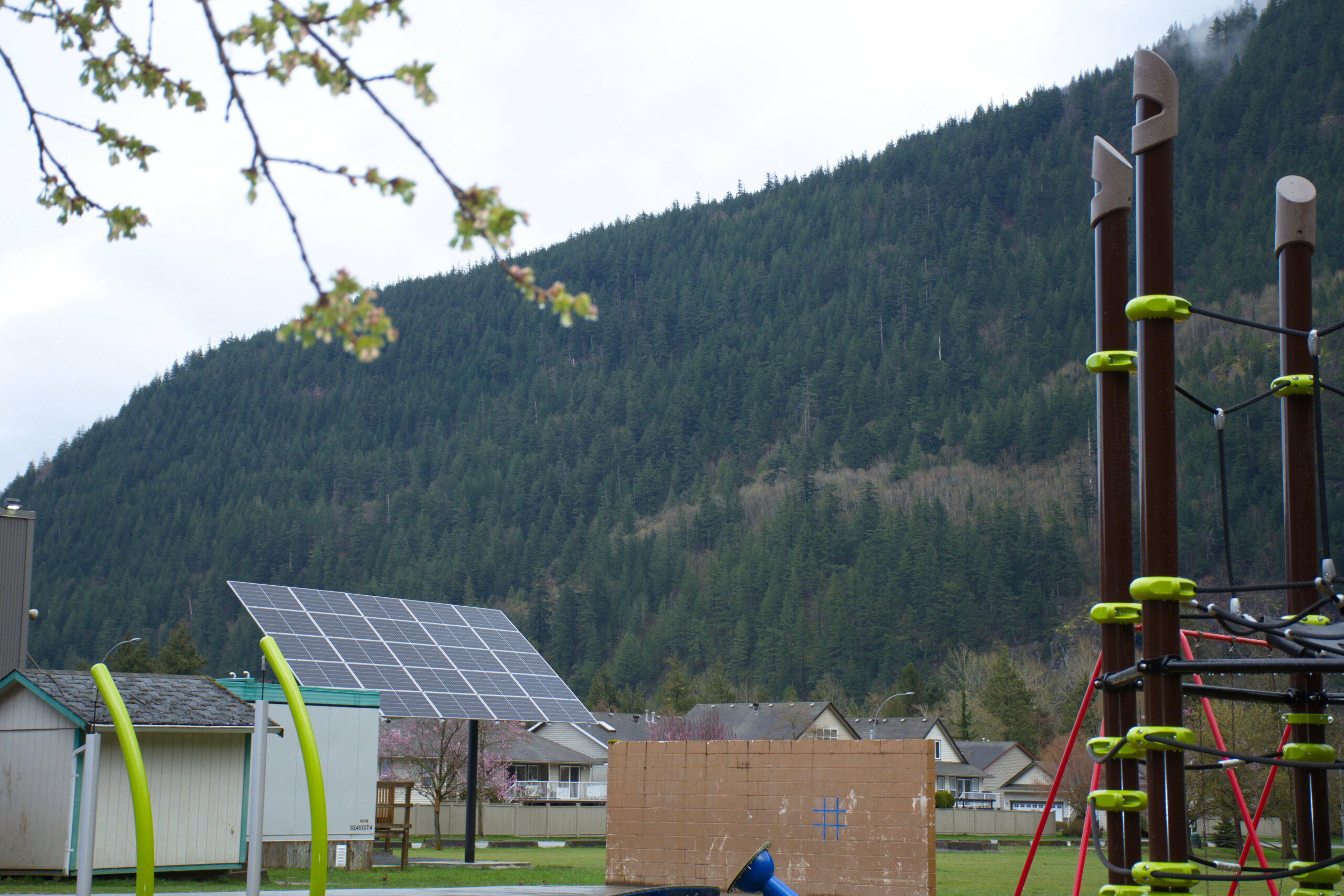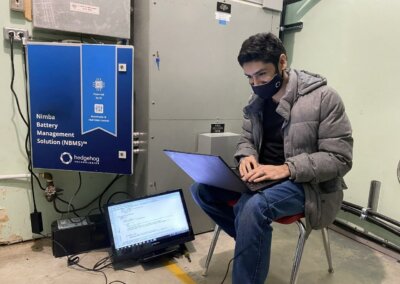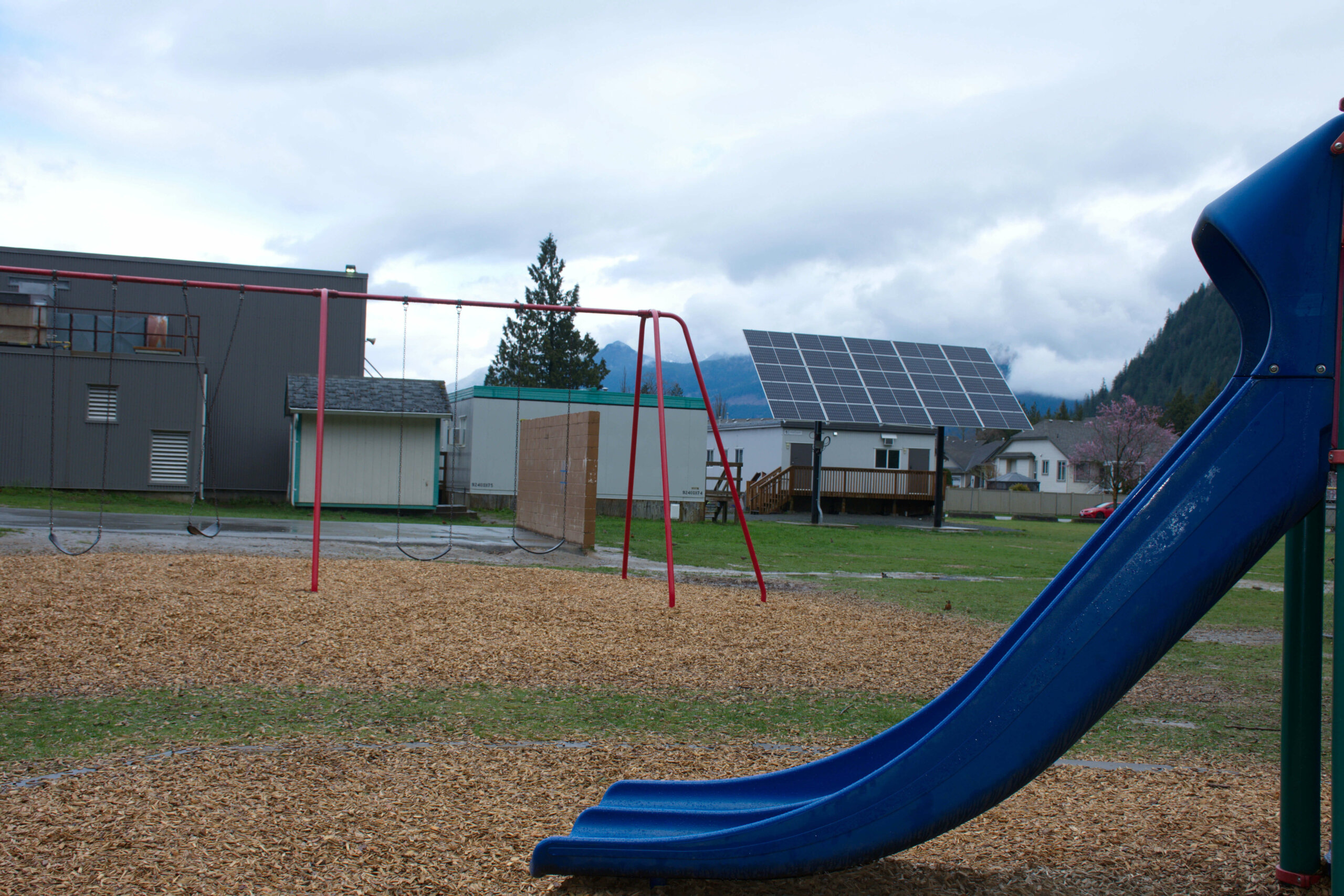About the Project
Hedgehog Technologies designed and managed the implementation of a unique, first-of-its-kind solar microgrid project for Harrison Hot Springs Elementary within School District 78 (SD-78) located in Hope, BC.
The school would experience blackouts as a result of prevailing winds from the mountains. Without access to backup generation, children were sent home from school, and students had trouble being picked up by their caregivers leaving some stranded.
The project included a PV solar, battery, and innovative microgrid controller solution which addressed the issue of blackouts. The system allowed the elementary school to maintain power during outages and provided the opportunity for BC Hydro to access stored energy through demand response events. This solution ensured that students could remain in school in the event of blackouts and prevented future students from becoming stranded.
Approach
The electrical engineering team designed the system to support the energy needs of the school during a blackout by assessing energy usage, determining critical loads, and calculating the required battery storage system and PV solar size. Once the design was complete, the team had to obtain authorization from the net metering department at BC Hydro. This involved submitting detailed plans and documentation for the system, and demonstrating that it met all of the necessary safety and regulatory requirements.
Hedgehog also developed an innovative microgrid controller solution called Nimba used to manage the system operations efficiently. Hedgehog programmed the microgrid controller to manage utility energy events. This included programming the controller to automatically switch to battery power during a blackout, and to manage the charging and discharging of the batteries based on the school’s past energy consumption trends.
A dashboard was created that included information on the state of charge of the batteries, the amount of energy being produced and consumed, and any alerts that were triggered.
Finally, the team commissioned the system, which involved installing and testing all of the components, and training the school staff on how to operate and maintain the system. This included testing the system during a simulated blackout to ensure that it was operating properly and that it could support the energy needs of the school.
Results
This project not only maintains continuity of education by using stored energy during blackouts, but also provides a hands-on learning experience for the benefits of renewable energy applications. The children’s understanding and solutions will play a vital role in shaping the future of our planet. The lessons learned from this project can serve as inspiration for future generations.
Service(s) Provided
Electrical Engineering
Project Management
Procurement
Construction
Go back to projects in
View other projects from
Stay in touch with us
Subscribe to our mailing list!
Organization
Connect






